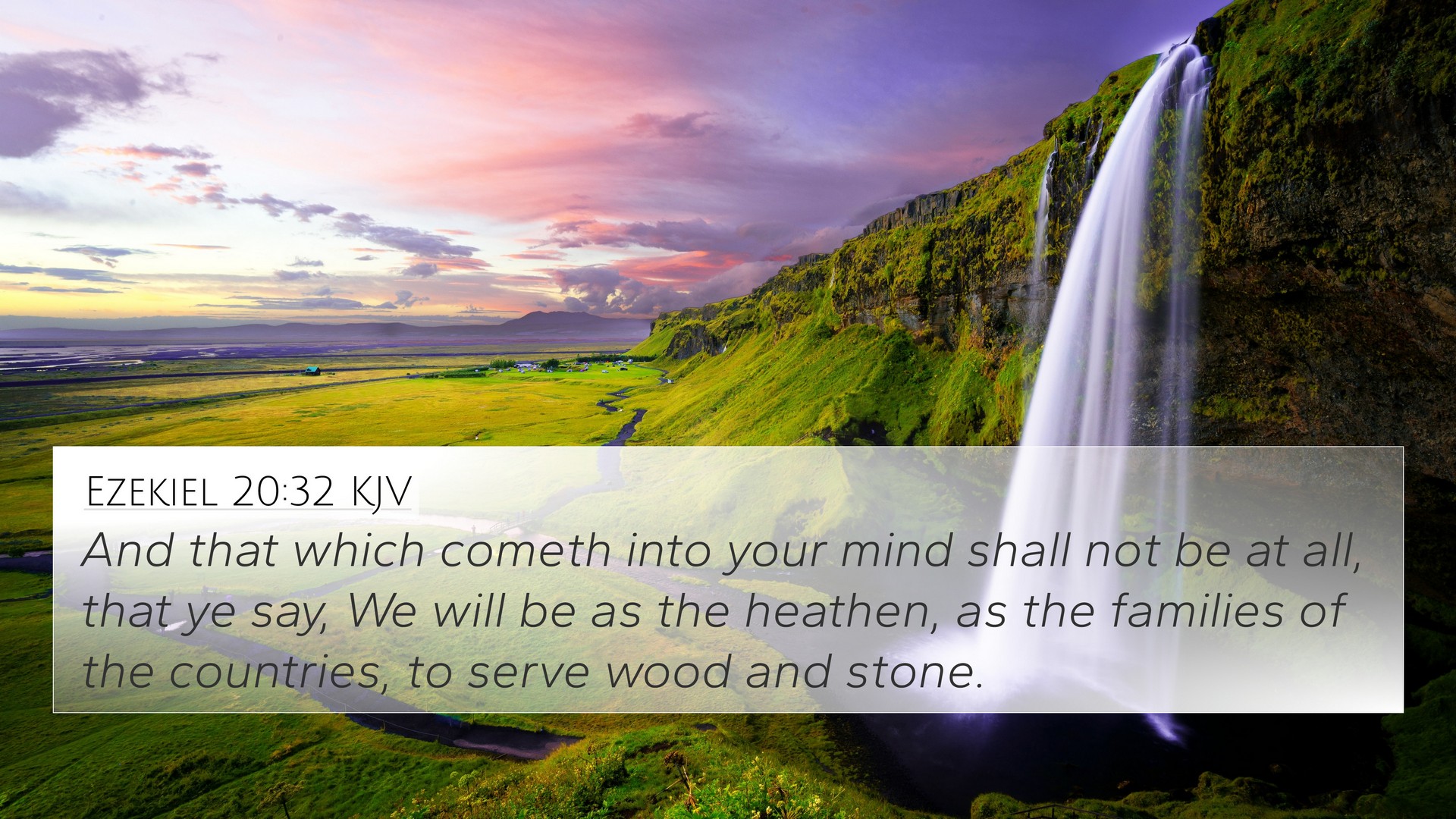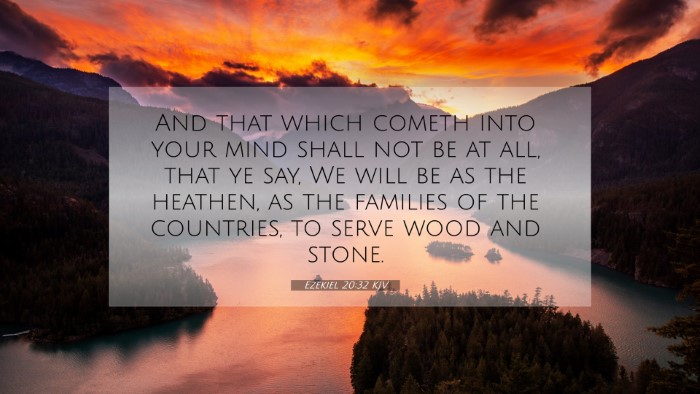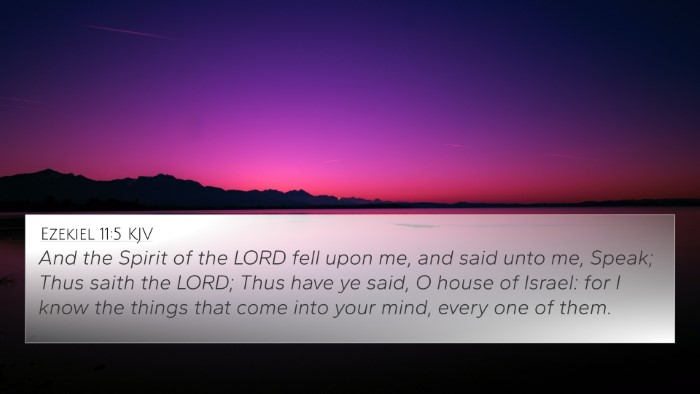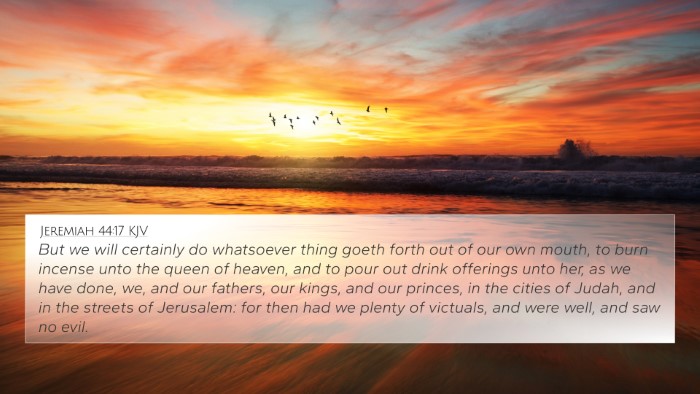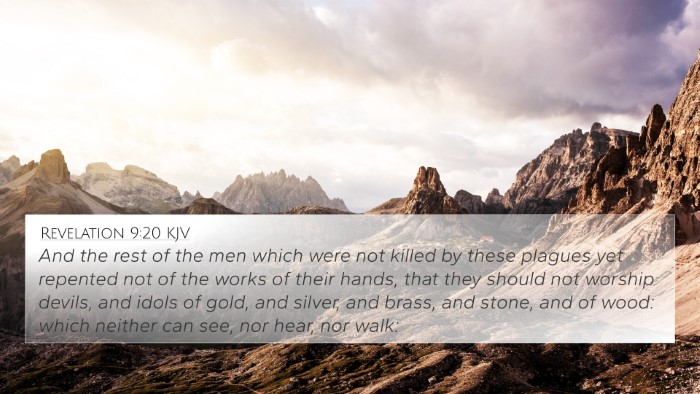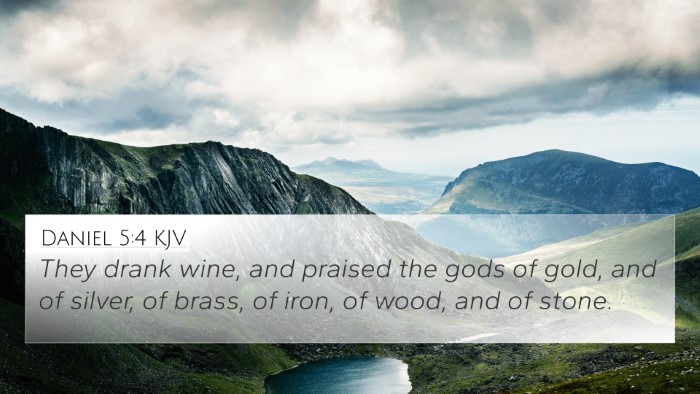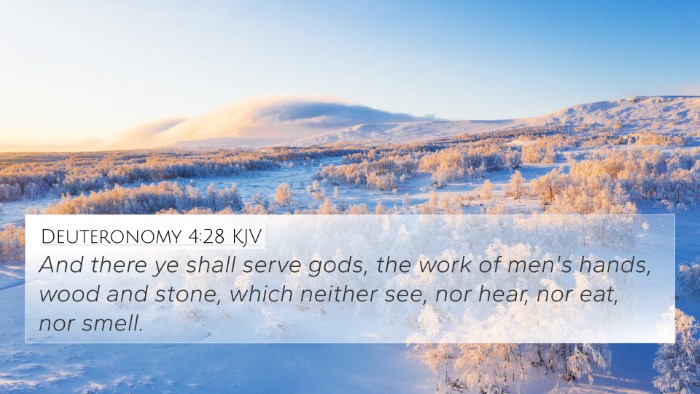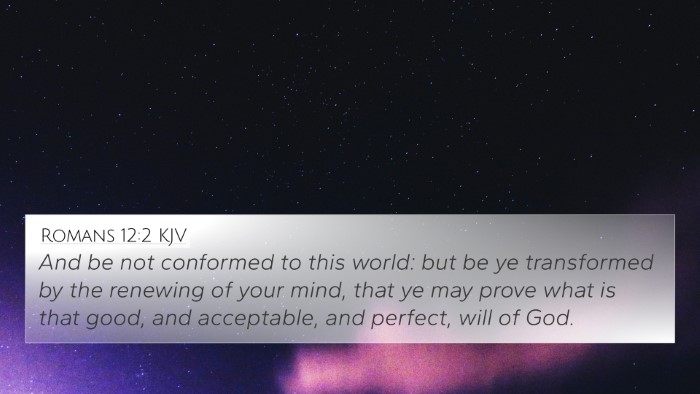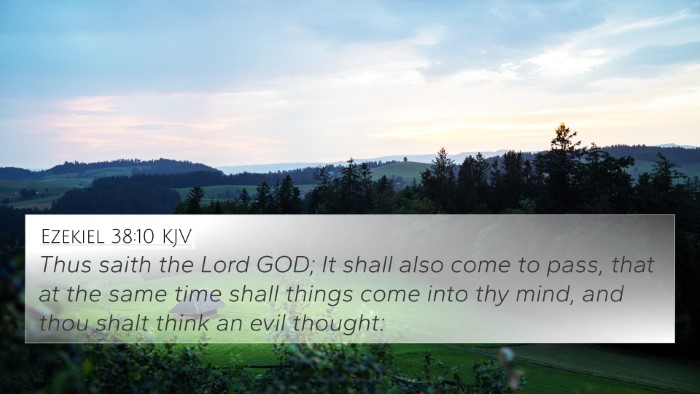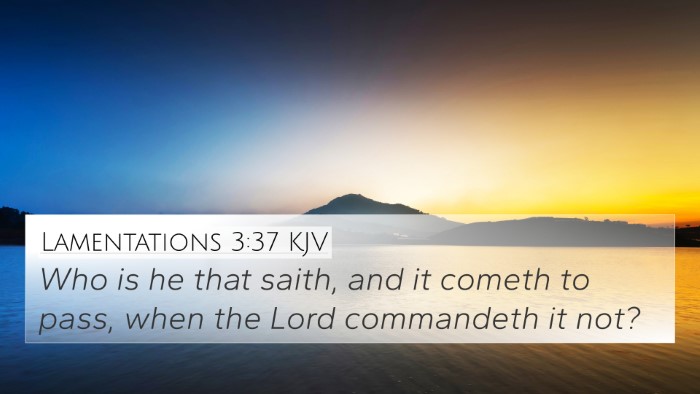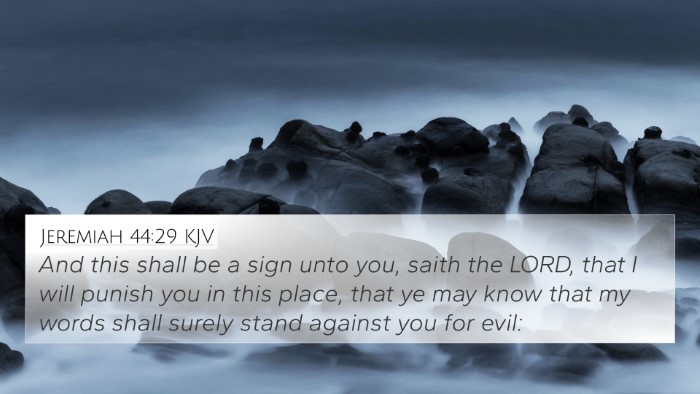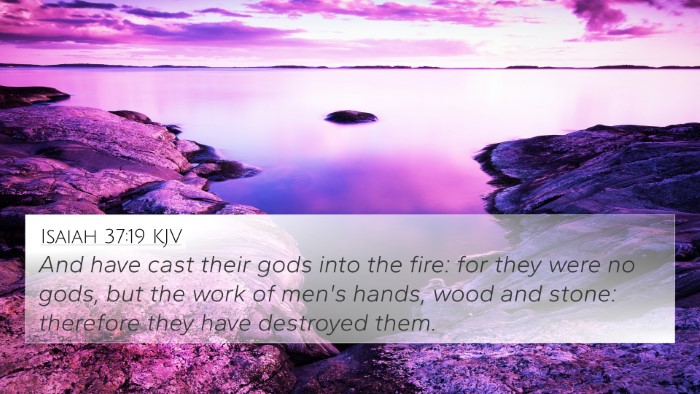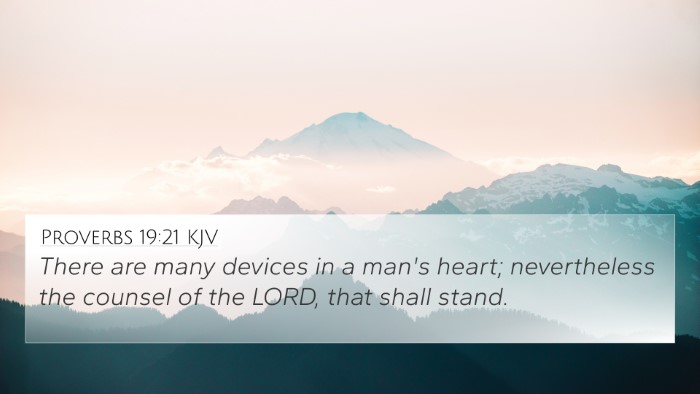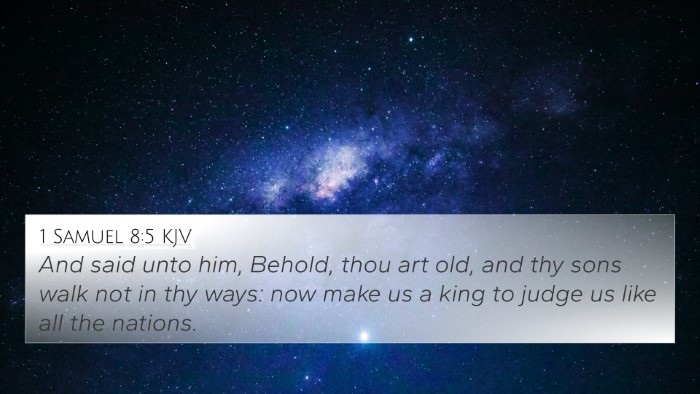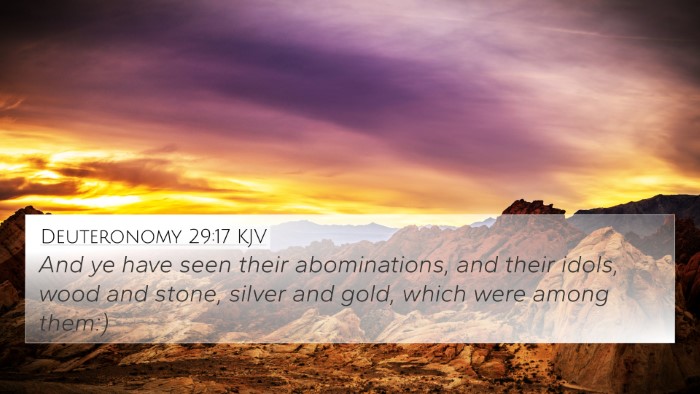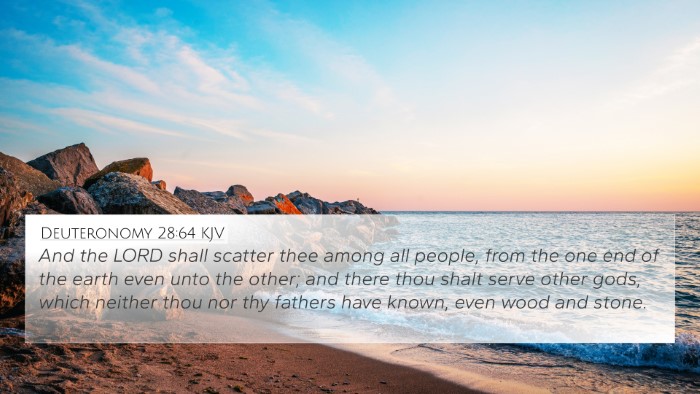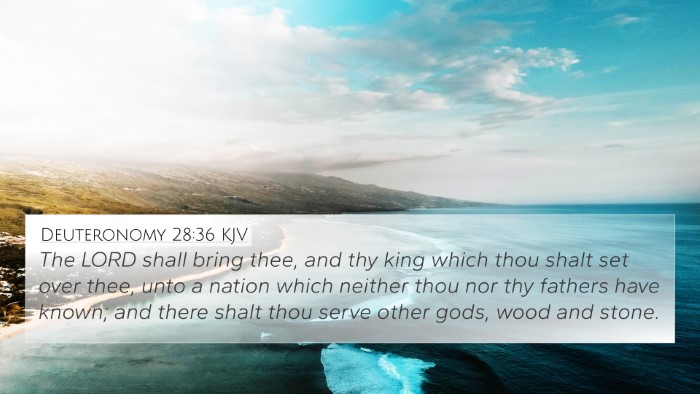Ezekiel 20:32 - Meaning and Interpretations
Ezekiel 20:32 states: "And that which cometh into your mind shall not be at all, that ye say, We will be as the heathen, as the families of the countries, to serve wood and stone." This verse communicates a profound warning from God to His people, cautioning them against adopting the practices and idolatrous ways of surrounding nations.
Summary of Commentary Insights
This passage reflects God's desire for His people to maintain their unique identity and purpose in serving Him, distinct from the ungodly practices prevalent in the world around them.
Key Themes and Exegesis
1. Divine Authority: God asserts His authority over the intentions and thoughts of Israel, affirming that their desires to imitate other nations are unfounded and unwelcome.
2. Idolatry Warning: The reference to "wood and stone" symbolizes the lifeless idols worshiped by other nations, emphasizing an important biblical principle against idolatry and the dangers of syncretism.
- Matthew Henry Commentary: Highlights the futility of turning away from God to serve created objects that cannot fulfill the spiritual needs of the soul.
- Albert Barnes Notes: Argues that Jerusalem’s people sought to align themselves with the customs of the heathen, indicating a lack of both faith and understanding about their covenant relationship with God.
- Adam Clarke’s Commentary: Explains that this passage is a reprimand, reminding the Israelites that their thoughts and inclinations should remain steadfastly directed towards the one true God.
Connections Between Bible Verses
This verse is intricately linked with several other scriptures that reinforce its themes and principles:
- Isaiah 44:9-20: Speaks about the folly of idol-making and worship.
- Jeremiah 10:14: Describes the foolishness of those who would create gods from wood.
- Exodus 20:3-5: Establishes the commandment against having other gods before the Lord.
- 1 John 5:21: A reminder to keep oneself from idols in the New Testament context.
- James 4:4: Illustrates the friendship with the world as enmity against God, suggesting the conflict between divine loyalty and worldly practices.
- Ezekiel 14:7: Addresses the issue of a person turning to idols in their hearts and how God responds to such actions.
- Romans 12:2: Encourages believers to not conform to the patterns of this world but to be transformed.
Thematic Bible Verse Connections
The central theme in Ezekiel 20:32 regarding the rejection of idolatry can link to broader biblical teachings on faithfulness, exclusivity in worship, and staying true to divinely appointed practices:
- Cross-referencing Biblical texts: Not only does this verse provide a warning about idolatry, but also invites an introspective analysis of one’s heart in light of God’s expectations.
- Bible verse parallels: Proverbs 3:5-6 echoes the sentiment as it encourages trust in the Lord rather than one's understanding.
- Inter-Biblical dialogue: There’s a clear exchange of ideas between the Old Testament admonitions against idolatry and the New Testament’s directive to worship in spirit and truth.
Practical Application: Using Cross-References
For those studying scripture deeply, utilizing tools for Bible cross-referencing can enhance understanding and provide clarity on themes:
- Bible concordance: Use this resource to locate verses supporting the teaching against idolatry.
- Bible cross-reference guide: Helpful in exploring thematic links across both Testaments.
- Cross-reference Bible study methods: Engage with comparative studies to solidify understanding of idolatry's consequences.
Conclusion
In conclusion, Ezekiel 20:32 serves as a critical reminder of the dangers of abandoning faith for worldly practices. It calls believers to reflect on their worship practices and the influences they allow to shape their spiritual lives. By exploring related verses and employing a comprehensive Bible cross-reference system, one can gain richer insights into the nature of God, the necessity of faithfulness, and the dire consequences of idolatry.
